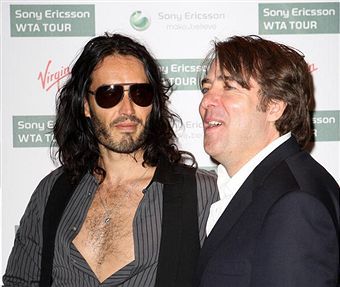 I was largely behind Charles Moore’s rebellion against the BBC license fee. Partly
for aesthetic reasons – I don’t like Jonathan Ross, and the truth is I wouldn’t like him much better if he were paid only £6 per year, rather than £6m. Partly too for
a reason of which I expect Charles himself would not remotely approve – in a rather 1968 adolescent manner, I think individual rebellions against “the man”, as I believe authority
was once called, should be encouraged. But I do not share the philosophical objection which I think underpinned Mr Moore’s act of defiance: that the license fee per se is unjust and that, as
a corollary, the market is best placed to determine what television programmes we should be allowed to watch.
I was largely behind Charles Moore’s rebellion against the BBC license fee. Partly
for aesthetic reasons – I don’t like Jonathan Ross, and the truth is I wouldn’t like him much better if he were paid only £6 per year, rather than £6m. Partly too for
a reason of which I expect Charles himself would not remotely approve – in a rather 1968 adolescent manner, I think individual rebellions against “the man”, as I believe authority
was once called, should be encouraged. But I do not share the philosophical objection which I think underpinned Mr Moore’s act of defiance: that the license fee per se is unjust and that, as
a corollary, the market is best placed to determine what television programmes we should be allowed to watch.
However, having said this, Charles’s diary in the last edition of the magazine put far more succinctly, and clearly, the point I was trying to get at in my blog about the BBC a few items down from this one. I talked about the BBC’s moral cross-subsidisation (which is never publicly admitted by the corporation) and how this is increasingly difficult to justify. Charles puts it better, with this exposition of what lies at the heart of the “endless contradiction” which the BBC exploits : “When you complain that it is funded in a privileged way, it says that it does things which no one else can do. When you complain that it spends its unique funding on enormous contracts with stars, it says it has to do so in order to behave like its rivals. The truth is that the concept of the star……….is incompatible with the Public Purposes expressed in the Charter of the BBC.” Charles does not point out that this has not always been the case, but it is nonetheless superbly put.







Comments